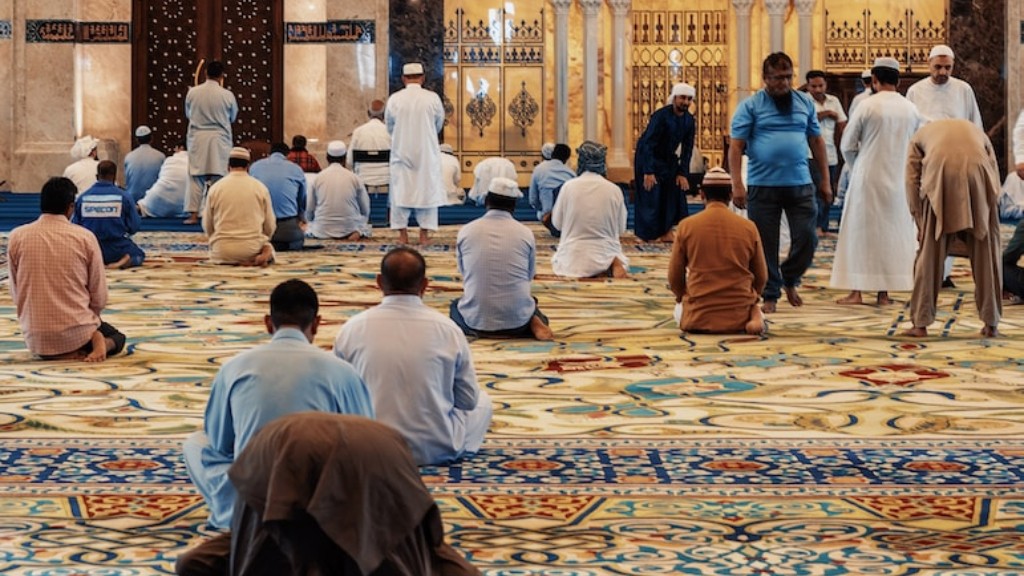Islam is a monotheistic religion originating from the Arabian Peninsula. The followers of Islam, called Muslims, believe in one God (Arabic: Allah) and consider the Quran, the central religious text of Islam, to be the verbatim word of God. Islam spread throughout the Arabian Peninsula and then beyond, to North Africa, West Africa, and eventually as far as Southeast Asia and China. Islam had a profound impact on Africa, both in terms of its spread and its impact on the continent’s societies and cultures.
Islam had a profound effect on Africa. It changed the political landscape, as well as the social and economic fabric of many African societies. Islam also introduced a new model of governance, which in many cases was more effective than the traditional African systems.
How did Islam spread in Africa and what effect did it have?
The spread of Islam in Africa was a gradual process that was influenced by both Arab traders and African clerics. Between the eighth and ninth centuries, these groups began to spread the religion along the eastern coast of Africa and to the western and central Sudan. This process stimulated the development of urban communities and helped to shape the cultural landscape of the region.
The coming of Islam to Sub-Saharan Africa was a turning point in the region’s history. The new faith brought with it a new political system, based on the concept of the caliph, which combined political and religious authority. This system was more attractive to African rulers than the previous system of rule by tribal chiefs. Islam also encouraged trade and prosperity, and the traffic in slaves increased. The arrival of Islam thus had a profound impact on the political, economic, and social life of Sub-Saharan Africa.
What impact did Islam have on North Africa
Islam had a significant impact on the culture of northern Africa. Although some local traditions and values were often incorporated into the religion, Islam had a unifying influence in the government, the culture, the architecture, and the economy.
The successful spread of Islam was largely due to its relationship with Arab merchants. These merchants took the religion across the Sahara Desert and into Asia and Africa. Islam became a major force in the Mali Empire under the rule of Mansa Musa.
What is the relationship of Islam to African culture?
The introduction of Islam to the Swahili coast by Arab traders in the ninth century was a significant event in the region’s history. The Swahili people recognized the religion’s value and saw that adopting it would improve their trading relationships. Islam has had a profound impact on the Swahili coast, shaping its culture and society.
The growth of Islam in the Middle East and North Africa led to the unification of many nomadic people into a more cohesive culture. This was accomplished through the creation of a common currency, making Arabic the official language, and standardizing measurements. This period of stability and prosperity is known as the “Golden Age” of the Abbasid Dynasty, which came to power by overthrowing the Umayyad in 750.
What is the historical impact of Islam?
The Arabs conquered Syria, Palestine, and Egypt from the Byzantine empire, while Iraq and Iran, the heart of the Sasanian empire, succumbed to their forces. Here in these lands, Islam fostered the development of a religious, political, and cultural commonwealth and the creation of a global empire.
Islam is a religion that began in the 7th century in Arabia. It spread to Africa through merchants, traders, scholars, and missionaries. Islam spread throughout West Africa via merchants, traders, scholars, and missionaries, that is largely through peaceful means whereby African rulers either tolerated the religion or converted to it themselves.
What factors led to the spread of Islam in Africa
The rise of Muslim states in Africa was the result of a dramatic power struggle for political, religious, and cultural control of the region. Islam is an Arabic religion that was founded around 613 by the prophet Muhammad. It spread quickly across the Arabian Peninsula and into Africa and from there, just kept growing.
Islam first took hold in Africa in the 600s and 700s. It was brought to Egypt and North Africa by conquering armies and to the East African coast by traders and merchants. West Africa did not encounter Islam until about 800, and the religion spread more slowly there than in the eastern part of the continent.
How did Islam change the lives of people?
There is no denying that the changes mentioned have had a positive impact on Arab society as a whole. However, it is important to remember that these changes did not come about overnight – they have been slowly taking place over the course of many years. Additionally, while these changes have no doubt improved the lives of many people, there are still many challenges that remain. For example, despite the fact that women’s rights have improved, there is still a long way to go in terms of equality. Similarly, while slavery has been abolished, there are still many people who are living in poverty and lack basic rights and freedoms. Nonetheless, the changes that have taken place are undeniable and it is hoped that Arab society will continue to progress in the years to come.
Islam first arrived in Africa in the 7th century CE, when the prophet Muhammad advised a group of his early followers to seek refuge from persecution in Mecca by crossing the Red Sea to Axum. Islam quickly spread across the continent, and today there are an estimated 1.2 billion Muslims in Africa. Islam has had a profound impact on African culture, art, politics, and society, and continues to play a significant role in the continent’s future.
What were the causes and effects of the spread of Islam
Islam spread through a number of channels including military conquest, trade, pilgrimage, and missionaries. Arab Muslim forces conquered vast territories and built imperial structures over time. Through these channels, Islam penetrated deeply into many different societies, altering their course of history.
It is clear that Muslim scholars made significant contributions to a wide variety of fields during the medieval period. Their translation of classic Greek texts allowed for a greater understanding of these concepts in the West, which played a role in the European Renaissance.Muslim scholars also made advances in their own fields of astronomy, zoology, geography, arithmetic, navigation, art, and architecture. Their knowledge and technological innovations helped to shape the world as we know it today.
What were the major achievements of Islam?
There are many Muslim inventions that have had a significant impact on the world. Here are Hassani’s top 10:
1. Surgery: Around the year 1000, the celebrated doctor Al Zahrawi published a 1,500 page illustrated encyclopedia of surgery that was used in Europe as a medical reference for the next 500 years.
2. Coffee: Coffee was invented by the Muslim scholar Abu al-Dahr al-Jaziri in the 13th century. It quickly became popular around the world and changed the way people socialized and worked.
3. Flying machine: The first flying machine was invented by the Muslim scientist Abbas Ibn Firnas in the 9th century. Though it was not successful in achieving sustained flight, it was an important step in the development of aviation.
4. University: The first university was founded in 859 by the Muslim scholar al-Kindi. It was a leading center of learning for centuries and helped to spread Muslim learning and culture throughout the world.
5. Algebra: Algebra was developed by the Muslim mathematicians Muhammad ibn Musa al-Khwarizmi and Omar Khayyam in the 11th and 12th centuries. It revolutionized mathematics and is still an
Islam began with the Prophet Muhammad in the 7th century AD. Islam means “surrender” and its central idea is a surrendering to the will of God. Its central article of faith is that “There is no god but God and Muhammad is his messenger” Followers of Islam are called Muslims. Muslims believe in one God who has revealed himself through the prophets, and that Muhammad is the last and greatest of these prophets. Muslims believe in the Koran, which they believe to be the direct word of God, and in the Hadith, which are the sayings and actions of the Prophet Muhammad. They also believe in the principles of Jihad, or holy war, and in the idea of a caliphate, or Islamic state.
Warp Up
The coming of Islam had a profound and visible impact on the lives of Africans. It completely transformed the political, social, economic and cultural fabric of African societies. Although it is difficult to quantify the precise nature and extent of Islam’s impact on Africa, there can be no doubt that it was profound and far-reaching.
It is clear that Islam has had a profound and lasting impact on Africa. Islamic values and beliefs have helped to shape the societies of many African countries. The spread of Islam has also brought new opportunities and challenges to the people of Africa.



